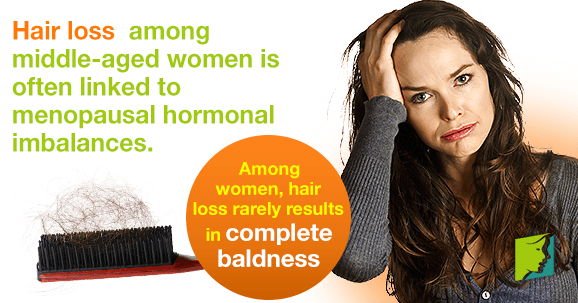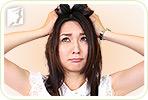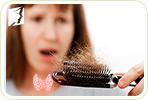Hair loss among healthy middle aged women is a common and troublesome symptom of menopause. It can be a deeply upsetting problem in a woman's life and greatly affect her self-esteem. Women often feel helpless when they experience hair loss and are sometimes confused about how best to deal with this issue.
The information below is designed to help those affected understand the problem of hair loss in healthy middle aged women and why it happens, so they can deal with it effectively. Find more insight into the different aspects of this problem below.
Understanding Hair Loss in Healthy Middle Aged Women
Hair loss, also known as alopecia, basically means that a woman is losing more hair than usual, since shedding between 50 and 100 hairs per day is considered normal. Normally, each strand of hair grows approximately ¼ of inch every month, and continues growing for up to six years. When hair falls out, another grows in its place. Hair loss in healthy middle aged women occurs when the amount of hair that falls out exceeds the amount being produced.
Although generally perceived as a man's problem, hair loss affects all women at some point in their lifetime, and two-thirds of women will be severely affected. However, unlike men, hair loss among healthy middle aged women very seldom results in complete baldness. On the other hand, most women develop hair thinning as they age.
Uncontrolled and excessive hair loss in healthy middle aged women after menopause can significantly impact on a woman's emotional well-being, so it's essential that women are aware of its causes and how best to deal with this problem.
What Causes Hair Loss in Healthy Middle Aged Women?
The causes of excessive hair loss in healthy middle aged women are personal and depend on a complicated set of factors, but they can generally be divided into psychological and physical causes.
Psychological causes
Hair loss can be caused by anxiety disorder, abrupt stress, overwork, or by undergoing a strong shock (such as a car accident or devastating news). In these cases, it should be treated by resting and implementing a sensible exercise program. Keep in mind that, in most cases, a combination of psychological and physical factors will be at fault.
Physical causes
Many different physical conditions can affect the hair cycle, especially hormonal imbalances. Among healthy middle aged women, this is most likely caused by imbalanced estrogen and an approaching menopause. Less commonly, nutritional deficiencies or thyroid problems may the culprits, although they will probably cause other symptoms beyond hair loss.
Although there are several ways to manage hair loss, the best way is by combining therapies such as lifestyle approach and alternative medicine. You can click on the link below to learn more about the treatments for hair loss that best suits you.
Sources
- Mayo Clinic.(n.d)."Hair Loss". Retrieved from www.mayoclinic.com.
- Dr. McNair, Trisha. (n.d)."Hair Loss". Retrieved from www.bbc.co.uk.
- n.d).The American Hair Loss Association.(n.d)."Women's Hair Loss". Retrieved from www.americanhairloss.org.




